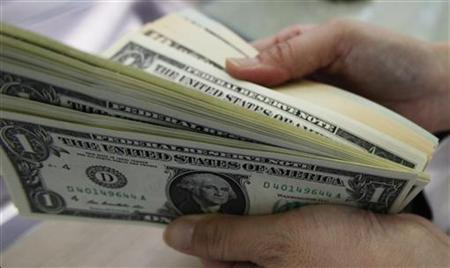 | « Back to article | Print this article |
 The long, bumpy road to America's "fiscal cliff" has been traveled over many years by Congress and a series of U.S. presidents, including Barack Obama.
The long, bumpy road to America's "fiscal cliff" has been traveled over many years by Congress and a series of U.S. presidents, including Barack Obama.
Some of the steps along the way had good intentions. Some had no intention other than to avoid hard decisions.
At the end of this month, major budget and tax decisions are converging in a challenge dubbed the "fiscal cliff." Will lawmakers rise to the occasion? Or will they delay again?
Here is a time line of how the country got where it is:
* 1998-2001. Long economic expansion of 1990s peaks. U.S. government budget in surplus under President Bill Clinton.
* 2001. Stock market tech bubble bursts. President George W. Bush and Congress enact deep "temporary" tax cuts. Some Republicans predict cuts will spur economy, pay for themselves. Sept. 11 attacks occur. United States and allies invade Afghanistan.
* 2002. After four years of surpluses, U.S. budget slips into deficit of $158 billion. Bear market in stocks.
* 2003. United States and allies invade Iraq. Bush and Congress cut taxes further. Deficit grows to $378 billion.
* 2004-2006. Stock market recovers. Deficit shrinks.
* 2007-2008. Housing market bubble bursts. World financial crisis. Stock market crashes. Worst U.S. recession since Great Depression. Unemployment, home foreclosures soar. Bush, Congress bail out big banks. Deficit jumps to $459 billion in 2008.
* 2009. Obama, Congress enact $787 billion stimulus, including expanded "temporary" tax breaks for children, education. Auto industry bailed out. Recession ends midyear. Stock market bounces back. Deficit hits $1.4 trillion.
* 2010. Obama signs healthcare overhaul into law. Obama forms Simpson-Bowles deficit reduction panel. Its plan for fiscal reform is largely ignored. Republicans win control of House of Representatives. Obama agrees to extend Bush tax cuts for two years. Deficit shrinks to $1.3 trillion.
* 2011. Treasury Department request for increase in U.S. debt ceiling becomes focus of fight in Congress. Republicans, Democrats settle dispute by forming "super committee" to examine fiscal reform. Debt ceiling raised. U.S. credit rating downgraded. Super committee collapses in discord. Deep, mandatory budget cuts triggered for 2013. Stock market makes choppy advance. Deficit estimated at $1.6 trillion.
* Spring 2012. Bernanke warns lawmakers of "massive fiscal cliff" at year-end. Main elements include expiration of Bush tax cuts and other tax measures, along with budget cuts due to "super committee" flop.
* Autumn 2012. Government forecasts warn the fiscal cliff, left unaddressed, could trigger recession. Obama reiterates support for keeping Bush tax cuts for all except high-income earners. Republicans support extension of Bush tax cuts for everyone. Deficit for 2012 estimated to shrink to $1.1 trillion.
* Nov. 6, 2012. Obama re-elected, Democrats keep control of Senate, Republicans keep control of House.
* Nov. 13, 2012. Congress returns for "lame-duck" session to deal with Obama on fiscal cliff issues.
* Nov. 16, 2012. Obama, congressional leaders sound upbeat about prospects for a deal after meeting at White House.
* Nov. 29. 2012. After Thanksgiving holiday and days of little action, the White House releases its first offer in "fiscal cliff" negotiations. Republicans dismiss it.
* Dec. 3, 2012. House Republicans release counter-offer. Democrats dismiss it.
* Dec. 31, 2012. If Congress takes no action, Bush tax cuts expire, other "fiscal cliff" elements begin to kick in.
* Early 2013. If no action from Congress, automatic budget cuts set to kick in. Debt ceiling expected to be hit again.